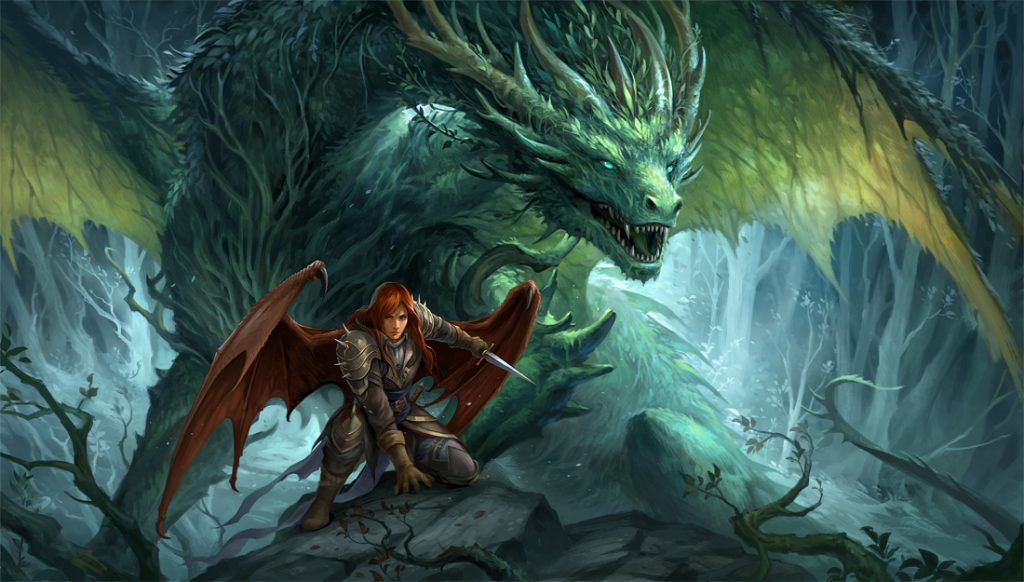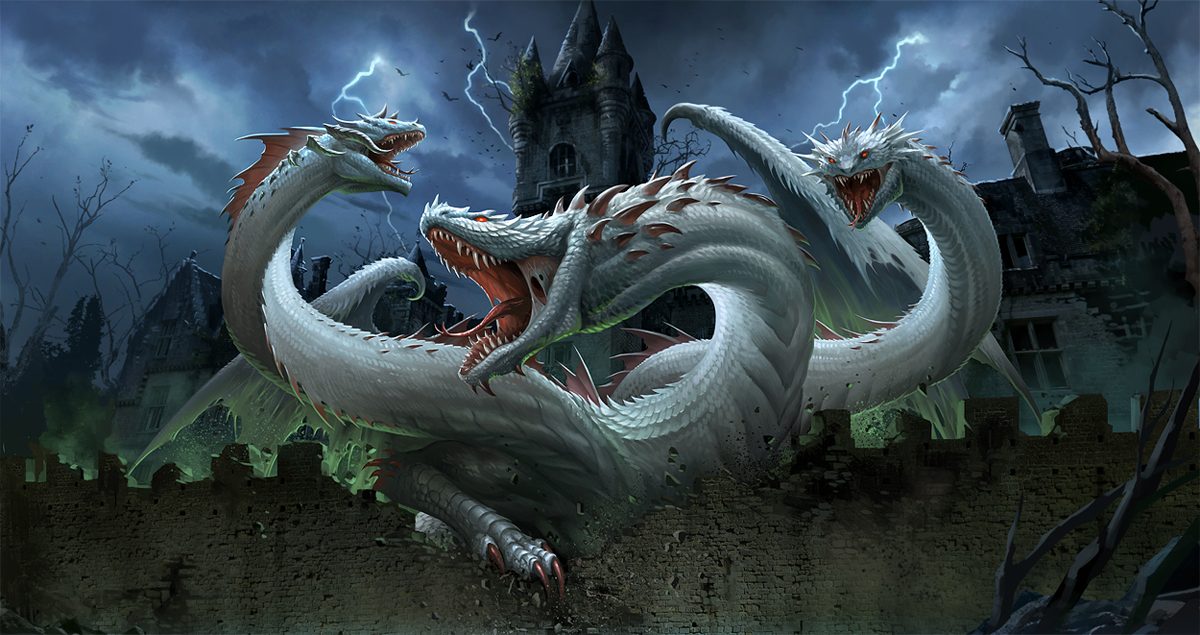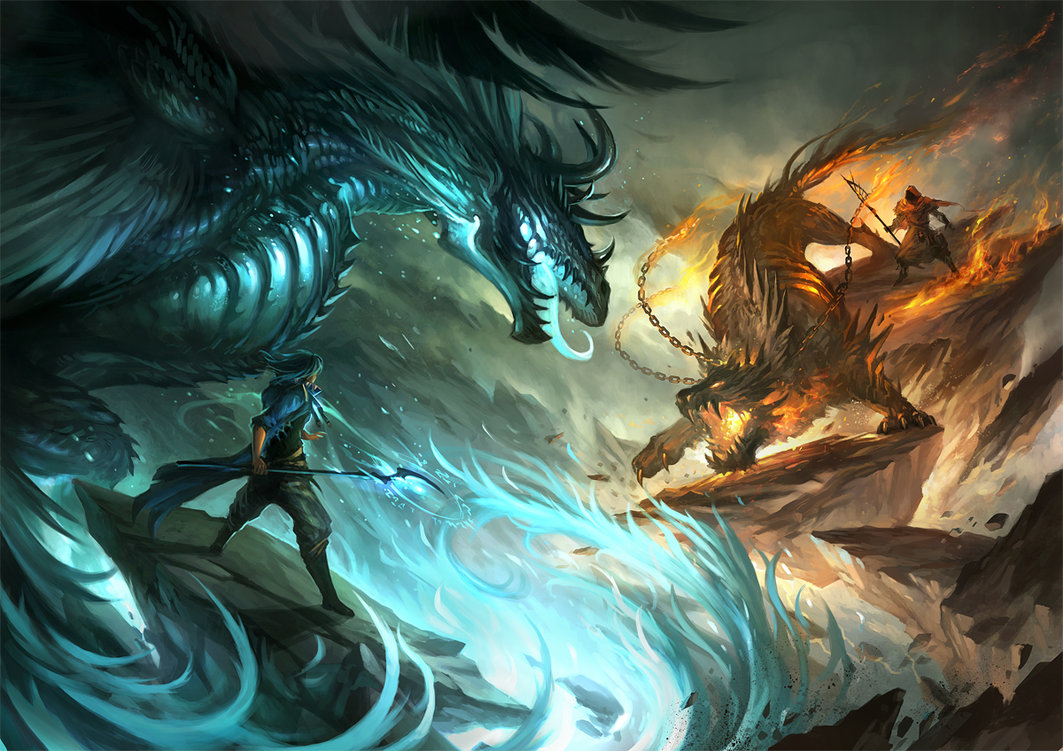The point of the game isn’t to win or lose – but Game Masters can (and should) cheat. But there’s a delicate balance a game master must achieve to not be considered a total jerk.
Lets take a look at the how and why.
What ‘Cheating’ Means
A game master, author, or storyteller has to manipulate their medium in a way to tell an interesting story. A lot of times ‘interesting’ means ‘different.’
Let’s say you’re playing a game of MASKS (Powered by the Apocalypse) as a superhero teen – along with his three companions – trying to protect Halcyon City from the villains that’d destroy it. A Game Master’s job, in this instance, is to manipulate the game in a way that challenges these four teens without compromising the story.
How do they do that? They cheat their asses off. Where your super-powered teens need to hop in their super powered Golf Cart and travel across the city – the villain can teleport. Where the teens have to struggle and fight against overwhelming odds with their developing powers, the villain can wave his hand and stop time or create an asteroid that’s hurtling toward the earth, making the PCs split their attention between saving the city and stopping him. Where the PCs need to uncover an elaborate plot and figure out a way to stop it, the villain has a spy in place and knows the party’s next move and has traps waiting for them.
It’s the nature of the game – and when done in this fashion makes the Heroes pull out all the stops to overcome adversity. It leads to great storytelling when, against those incredible odds, these teenage super heroes manage to come out on top!
But that’s not to say that cheating cannot be used maliciously – it very often is. Imagine that same game, but now the Villain waves his hand and the the city is destroyed. The teenagers find no clues on how to stop what happened or how to reverse it. The villain captures their families – having learned of their secret identity somehow. The heroes try to figure out how, but none of them made a mistake. The villain is winning again and again and again while the heroes stumble and trip, fall and try to stand constantly. A hero learns a new ability to teleport, but the villain has already planned for it and their teleportation no longer works – so their trapped inside a facility with no way out. It might still be fun, you might still see things along these lines in movies or comics – but suddenly the game seems unfair. Why?
Fair Cheating
The GM knows everything – it’s the purpose of having a game master. They are the arbiter of the plot threads that you’re all weaving together – as such, players cannot have ‘surprises’ for the GM. A GM has to know those surprises and prepare for their eventuality (even if just in the moment) to show the outcome of the story. A GM who only ever represents the world as-it-is to his players often find the game boring and disconnected – it all seems random and the PCs are seldom involved. So to fix this kind of issue, a GM has to bend the story and the mechanics presented to the players in a way to make things work.
But how?
A GM might have to set up a scenario in which something happens outside the scope of the game proper – or at least the parts of the game the Players know about. A dragon that is polymorphed into a human and hidden from all detection. A dark god who imprisoned themselves in a pendant because they knew a certain PC would wear it one day. A nigh-unkillable robot that seems to be magical, technological, and biological all at once.
Bending the framework of a system in ways your PCs cannot helps to further a story or add an interesting “unknown” dynamic to the world around them. If you listen to enough D&D podcasts, for instance, you’ve probably heard “some unknown magic” at least a dozen times. Game Masters cook these things up to add ‘spice’ to their game world and allow players to investigate things they otherwise could not understand.
Is it fate?
 A PC’s mother, thought to be dead, returns just in time to warn the PC of some incoming danger. An e-mail gets forwarded with a hint to the corporation’s real goals to a PC from a mysterious third-party. The fates align splendidly enough to give the PCs a chance to open a portal and cast the shadow creature back inside; a once in a hundred-year occurrence.
A PC’s mother, thought to be dead, returns just in time to warn the PC of some incoming danger. An e-mail gets forwarded with a hint to the corporation’s real goals to a PC from a mysterious third-party. The fates align splendidly enough to give the PCs a chance to open a portal and cast the shadow creature back inside; a once in a hundred-year occurrence.
The GM has to know when to uncover these hidden little plot threads for an emotional or narrative pay-off. It’s “GM Fiat” for these things to happen: “It happened because I thought it was time.” Is it cheating the system? Most certainly, yes. How did that dragon get from Dragonstone all the way past the wall?!
Because if it didn’t, your characters would have died, be happy.
Beyond Powerful
This is the hard one… GMs have to bend near-to-breaking the rules of the game to allow for an interesting challenge or fun encounter for the players. A bad guy might have a giant chicken-legged house with thousands of branch-like vines reaching down to snag and trap people who wander under it. They might have a crystal scepter that when they command transforms into a Hydra.
“Where do I get a crystal staff that transforms into a Hydra?” your player might ponder. Well, the answer is: you probably can’t. Villains require resources beyond what PCs can amass. The Villain either needs to out-think, out-plan, out-gun, or out-power the heroes in some way or … why are they even a villain?
Unfairness – Cheating Gone Wrong
Like I mentioned before, GMs have to cheat. It’s part of their job. But when a GM cheats in a way that undercuts a player or a player character – then we’re in the no-go zone. These are the moments when players get frustrated and irritated – they think to themselves “Jesus Christ, I know this isn’t in the game.” It’s when the laws set forth by the game are not bent for a challenge, but are broken in order to, I have to imagine, ‘teach a lesson’ to a player.
 The party finally searched for the Ice Dragon living atop the mountain only to discover it’s a Fire Dragon that vomits out white-magma creatures who are immune to all of your weapons and attacks.
The party finally searched for the Ice Dragon living atop the mountain only to discover it’s a Fire Dragon that vomits out white-magma creatures who are immune to all of your weapons and attacks.
PCs roll 16 successes out of 18 dice on a check to avoid being shot – but are shot and killed anyway. “This is a special gun that doesn’t miss.”
This is when a mechanic is ignored in order to buff a creature – “Wait, how did it climb up the ship, grab the deck hand, pull it off the ship, take his potion, drink it, and attack me in one turn?!”
The party doesn’t know how or why or when brigands apparently stole their stuff and made off with it, leaving no trace behind at all.
The simple truth of it is, I call all this bending, shifting, and manipulating the rules “Cheating” because that’s what you’re doing. But to what extent you cheat your players is the hard part. Any one of my examples for “fair cheating” if pushed too far become blatantly malicious cheating on the GM’s part… but luckily for you and me, there’s one single trick to keep you in line.
The One Golden Question
“Am I giving my players more than one way around this?”
If your answer to this is “no” then fucking stop doing it!
Players hate to be confused or feel dumb. No one, in my experience, has ever found either of those things to be “fun” in the true sense of the word. Take this imagined situation for example:
You walk into a large vaulted chamber and there is a massive centipede hanging form the ceiling 30 feet overhead. Roll initiative!
Cleric: Can I make an arcana check to see what this is? Sure. 31! You don’t know.
Sorcerer: I move far away, and I want to cast Dominate Monster on this thing! Okay. It doesn’t seem to work.
Wizard: I cast fireball on it. Nothing happens. What? The magic just fizzles away.
Fighter: Can I even reach it with my swords? It’s 30 feet up. I guess I ready an attack then?
On it’s turn, it drops down on top of all of you, even the sorcerer, and pins you all to the ground. You take 11 bludgeoning damage.
All: We don’t get a save?!
It’s a giant magic centipede with a woman’s face on it. When it lands it makes a big shock-wave that hurts you all and you can’t avoid it because it’s like a lair action.
We see here that at every turn the party is thwarted. Not a lot of explanation is happening on the part of the DM – this sometimes happens because DMs can forget that not everyone at the table knows all the information like they do. It’s a slippery slope and causes problems more than one would imagine. We also see that those terse responses didn’t give the players anything to go off of. Anytime something just flat-out doesn’t work – consider giving the players a little bit of information to go on – something to put their mind to work and not just point out that they failed. Also – if you’re running a game and have to “cook up” (make up, fabricate) some reason for something to happen the way it did (the party taking 11 damage), chances are you’re not being very fair… By jumping straight to initiative, you don’t just bring your game into order – you’re signaling to your players “beat this thing in combat or die.” Giving them only ONE solution to the problem and no hints at how to make that even happen.
Players want a challenge to come in many forms – they want to be puzzled, worried, and curious: and you can tweak things to give them that! So how can we fix this? Let’s see the same exact scenario run a bit differently.
You walk into the large vaulted chamber and there is a massive centipede hanging from the ceiling, 30 feet overhead, and languidly crawling down the central pillar of the room. But immediately you see that where grotesque mandibles should be on the creature’s head – there is the face of… your Cleric, Maria. But she’s older – crow’s feet near her eyes and deep troubled lines on the forehead. The carapace body of it is covered in hack marks and scars – there is still a dagger plunged into the thing’s enormous back.
Cleric: Can I make an arcana check? What is this? You have no idea! You’ve never seen anything even remotely like this before.
Sorcerer: I want to cast dominate monster on it – I don’t want it to hurt us! Your charm seems to have no effect – you feel the magic connect to the creature, but it’s mind seems to not be influenced by charm.”
Wizard: I cast fireball on it. The fireball zooms out and you see the red-hot sphere shrink and shrink until it eventually *fwishhh* fizzes away before it ever explodes. The creature’s front most legs, tiny compared to the rest, drop a quickly woven strand of what looks to be fiery magic that flashes and burns away when it hits the stone floor!
It looks down at you all and says in a wet sing-song voice “My, my, my… what indignity… no manners… And you’ve brought my daughter along – how interesting!” The centipede’s lower body drops from the ceiling and smashes into the ground around you all, like a Shepard’s crook. Roll me a Strength saving throw to see if you stay on your feet!
We cheat a lot here. This thing is clearly not in the monster manual (as far as I know). It’s some strange creation the players and the player characters have never seen, and are going in completely blind. On the one hand – nothing the players do seems to work. But on the other, we’ve given them a bit of a hint as to why. This being, since it can speak, is clearly sapient and its tiny legs dropping that strand of magic shows the party that it’s somehow guarded against such things – since the party isn’t currently fighting it, they don’t feel overwhelmed and desperate, and we’ve also answered our golden question: the party knows that charms and magic don’t work on it very well, but they know that it wants to talk to them, has ties to the Cleric – Maria, and also that weapons seem to wound it just fine. Instead of their mind spinning in place, we’ve given them a direction – they can put their minds to work trying to solve/overcome the problem instead of concerning themselves with the injustice of their situation.
In this example we robbed the characters of 3 interactions using this creature (arcana, dominate, and fireball) so it’s FAIR for this creature to drop its body around them, trying to knock them off their feet, instead of just dealing some suspicious auto-damage. Hell, chances are my home-group would talk to this thing for quite a while if I presented it to them (and I should).
Your Fun
 If during this article you found yourself saying “I’ll do what I want” or “I’m god at my table” – you can see yourself out and we can part as acquaintances. My gaming philosophy is not for everyone! I admit that and I know it to be true.
If during this article you found yourself saying “I’ll do what I want” or “I’m god at my table” – you can see yourself out and we can part as acquaintances. My gaming philosophy is not for everyone! I admit that and I know it to be true.
If your fun hinges around these sorts of tactics (Example given by a Patron of mine: The Pretend Wizards podcast): trolling players with information they’ll never know, making their checks and spells fail because you don’t want them to succeed, making “counters” to the party to show how much better the game is than the PCs are – please read all of my articles that go into detail about the relationship you can have with your players. Their characters are the exact center of the universe you all share. They are the lenses that you all see the world through. Constantly fucking with them will not make anyone happy long term… so consider putting your own fun on a back burner for a while, and build up a relationship with your PCs.
Once you have a number of sessions under your belt and your players trust that you’re not trying to screw them over – then you can have these weird baffled or confusing moments and they’ll sit patiently until the “point” is made and react in-game. But if you don’t give them opportunity to trust you, your game will just be a weekly grind of people desperate to play who show up, drink soda, and haggle with you about what they can and can’t do every single turn.
Final Thoughts
I honestly feel sorry for people stuck in games that pit Game Master vs Players. It’s difficult and taxing, often it’s un-fun and can lead to stress in real-life relationships. If your DM is guilty of this kind of thing, they may not even realize it. Don’t hide how you feel behind your willingness to ‘suffer’ for the game. If you’re feeling it, chances are someone else at the table is, too. Be kind, be respectful, and work with your GM (or your players) to work the problem out.
You, as GM, only get one chance to present your idea to your players. There is not beta testing or revisions – once you say it, it’s out there. So try to put a lot of effort into giving your players enough information to go on, and only present them challenges that have more than one way around! If there is an ancient wizard with an enormous flame tiger who can only be defeated by the legendary Dragon of Blue Flame – you need to give your goddamn players a way to find themselves a legendary Dragon of Blue Flame!
I don’t always advocate rolling, but when I do… be sure you have to Drop the Die.
Review by JB Little, Follow me on twitter for more “useful” information.



